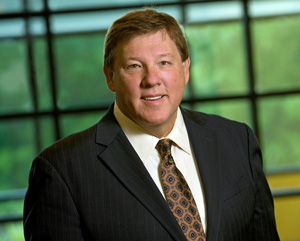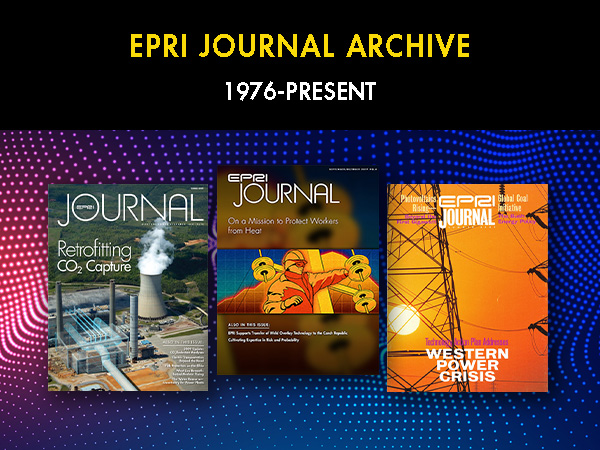
When I step back from the day-to-day demands of EPRI’s work and think about energy in today’s world, I am struck by some remarkable contrasts. First are contrasts in energy wealth and energy poverty.
Alongside this are contrasts in outlook. Many who are surrounded by energy technology—and the unprecedented wealth and comfort it provides—nevertheless express unease with particular technologies and their impacts.
The International Energy Agency’s World Energy Outlook 2016 reports that 1.2 billion people are without access to electricity and more than 2.7 billion people rely on the traditional use of biomass for cooking. In developed countries, our discussions of “biomass” call to mind a modern power plant with state-of-the-art emissions controls, providing electricity to power heat pumps and kitchen appliances.
This contrasts sharply with the “biomass” that provides open fires for cooking or warmth for those 2.7 billion people—and is associated with approximately 3.5 million deaths every year from indoor air pollution.
In developed countries, we use the word “pollution” much less than we did a generation ago. Today we more commonly speak of “emissions” and characterize various components in “parts per million” or even “parts per billion.” In our world of contrasts, those who enjoy a wealth of energy are able to focus on much broader and longer-term issues such as greenhouse gas emissions, while people who live in energy poverty must focus much more urgently on the basics of food, water, and warmth.
This keeps before us the urgent question of how we move all the world’s people out of energy poverty.
With this in mind, I continue to be struck by the contrasting views of nuclear energy in those parts of the world with energy wealth. Many embrace this workhorse technology, and many countries are actively deploying nuclear generation. Elsewhere, for various reasons, people and governments are working actively to shut down plants or to favor the deployment of other generation technologies.
EPRI Journal features an important interview with retiring Nuclear Energy Institute Chief Executive Officer Marv Fertel, whose discussion prompts me to consider some of these contrasts.
Top of mind for me, of course, is research and development. Nuclear power R&D is uniquely important because it encompasses both new technologies such as small modular reactors, and extending the operating life of large baseload plants that have operated for decades. (Mr. Fertel points out that these plants account for 60% of U.S. zero-emission power production.) And while it is easy to contrast old and new technologies, the outcome we’re working toward is precisely the same—producing electricity safely, reliably, affordably, with the highest standards of environmental stewardship.
In reading Mr. Fertel’s interview, I am impressed also by the contrasting circumstances in which nuclear energy will operate. With respect to small modular reactors, he points to their potential in serving remote areas lacking access to larger grids. At the same time, we see an important role for nuclear plants in increasingly dynamic grids that are incorporating rooftop solar photovoltaic panels and other distributed resources.
He points to the importance of business models, regulatory processes, and broad support of diverse stakeholders. Today nuclear power plants are being constructed in nations with governments that range from capitalist democracy to socialist to monarchy. Yet even if we compare and contrast these governments, we see the primacy of electricity in providing for the common good.
And that’s where my thoughts about contrasts turn to EPRI. As our collaborative R&D programs increasingly extend to Asia, Europe, Africa, Latin America and the Middle East, we focus on the common challenges and opportunities that R&D can address. We see a broad consensus among many nations and stakeholders that nuclear energy is essential to our future electricity portfolio. The World Nuclear Association reports that as of April 2016, more than 160 reactors with a total capacity of 182 gigawatts are planned globally.
In Hungary, the Paks Nuclear Power Plant joined EPRI’s Nuclear Program in 2015 at a significant juncture in the nation’s power system. The government had approved extending the operation of the four 500-megawatt nuclear reactors at Paks, and two additional 1,000-megawatt units are under consideration. Hungary could be poised to double its nuclear capacity. I encourage you to read the EPRI Journal article that tells the story in more detail.
So in this world of contrasts—in geography, societies, politics, stages of development—we see electricity literally as a force for good. And on behalf of all the people in EPRI, our members and in many other R&D endeavors, I will add that nuclear power can also be described using precisely those words. At that point in the future when we have overcome energy poverty for all, we will need to acknowledge the people and the technologies that make it work—including nuclear power.
Mike Howard

President and Chief Executive Officer, EPRI

